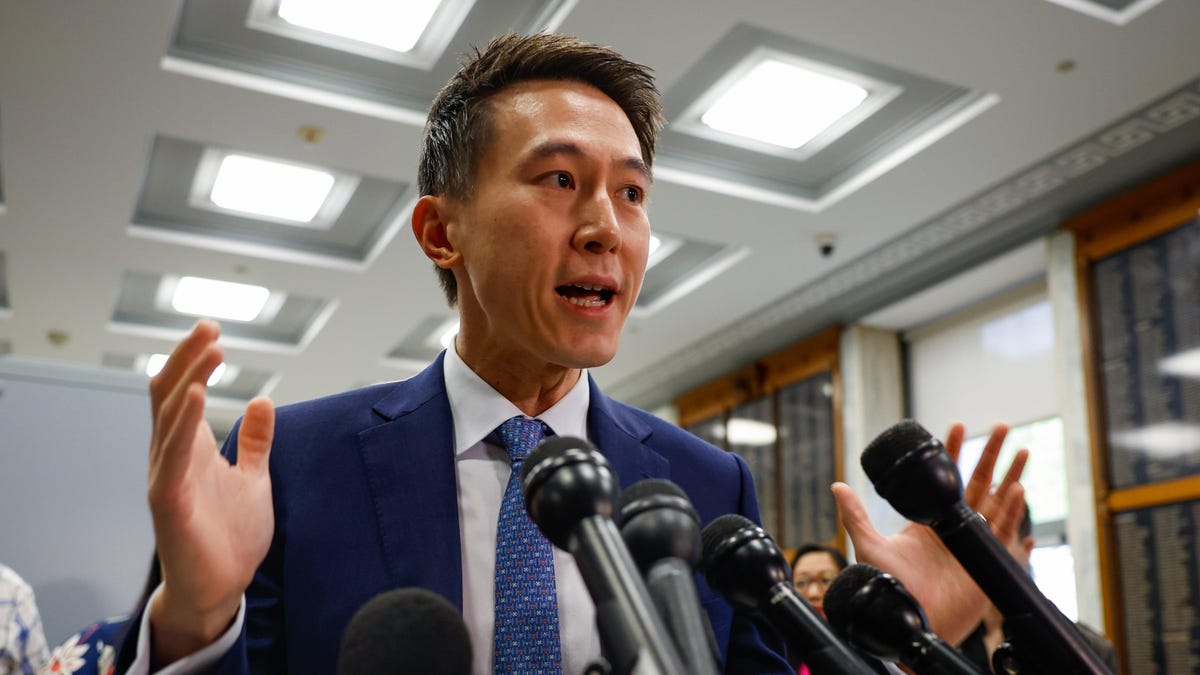
A bill forcing the China-based ByteDance to sell TikTok, or face an outright ban, passed the United States House of Representatives on Wednesday in a vote of 352 to 65. The bill will now head to the Senate, where it is expected to face tough opposition before it can reach President Biden, who indicated he would sign it into law.
“The First Amendment does not give the Chinese Communist Party the right to American data, or the right to manipulate the minds of Americans,” said Texas Representative Dan Crenshaw on the House floor Wednesday. “That would be a really weird interpretation of the First Amendment.”
Advertisement
Despite the overwhelming support for the bill, several influential Congress members voted against it. Democrats Alexandria Ocasio-Cortez from New York and Jim Himes from Connecticut, and Republican Marjorie Taylor Greene from Georgia voted against the forced sale or ban of TikTok.
Advertisement
“I’m voting NO on the TikTok forced sale bill,” said New York Representative Alexandria Ocasio-Cortez on X. She said the bill was incredibly rushed, and any legitimate national security concerns “should be laid out to the public prior to a vote.”
Advertisement
The bill, “Protecting Americans from Foreign Adversary Controlled Applications Act,” would give the White House power to crack down on apps that it determines to threaten national security. If passed, US Presidents could label apps as “foreign adversary-controlled applications” and force them to be sold off from their foreign adversary (Russia, China, etc) owners within 180 days. If no sale occurs, the apps will be banned from app stores and blocked by internet service providers in the United States.
The bill specifically calls out TikTok, but the app is going down without a fight. Bloomberg reported that TikTok plans to “exhaust all legal challenges” before considering any kind of divestiture from ByteDance, which could foreshadow years of legal battles.
Advertisement
TikTok called the bill a “ban” in an emailed statement to Gizmodo, noting the House rushed the process. “We are hopeful that the Senate will consider the facts, listen to their constituents, and realize the impact on the economy, 7 million small businesses, and the 170 million Americans who use our service.”
Last week, TikTok sent push notifications to American users asking them to call local congress members to stop the ban. The plan reportedly backfired, enraging members of Congress as their phones rang off the hook all day. The charade highlighted how much power TikTok has over Americans.
Advertisement
Despite Donald Trump’s effort to ban the app in 2020, the former President has now reversed his position and is opposing the TikTok bill. Trump said in a tweet, or rather, “a truth,” that a TikTok ban would benefit Facebook which is “a true enemy of the people.” Trump is also reportedly close with a major investor in TikTok, Jeff Yass.
Elon Musk is also opposing the TikTok bill, but he’s more concerned about freedom of speech, per usual. Musk said the bill was something of a trojan horse, and is really about “censorship and government control.”
Advertisement
The proposed law is now in the hands of the Senate, which could stand in the way of this bill. Senator Rand Paul, a Republican from Kentucky, pledged to block any measure he felt violated the Constitution, according to The Washington Post. Senator Paul says Americans use TikTok to express their freedom of speech, other Senators have expressed a similar sentiment.
Services Marketplace – Listings, Bookings & Reviews